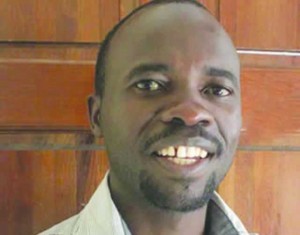After three painful years of pressing for answers from the Mugabe –
and now, Emmerson Dambudzo Mnangagwa – government, Dzamara’s family,
and the rest of the nation, have not heard anything worthwhile on his
whereabouts and what happened to him.
The only ‘sin’ Dzamara committed was calling for Mugabe to resign – a
man who had ruined the lives of millions of Zimbabweans, through his
warped and disturbed economic policies, corruption, and brutal and
atrocious rule.
What baffles everyone in this country – and possibly, the whole
civilized world – is that the current president, Mnangagwa, also
wanted Mugabe to resign – such that, the military intervention last
year November, in state affairs, was supposedly for that very reason.
Despite Mugabe’s subsequent resignation, at the behest of the military
and his party ZANU PF – resulting in Mnangagwa’s usurping of power –
it is shocking that the new president – whose actions to push for
Mugabe’s resignation in November 2017, seemed to be in alignment to
Dzamara’s desires – has not said a word on his abduction and
disappearance.
Why would Mnangagwa be so silent on this very crucial matter, when all
Dzamara wanted was what he (Mnangagwa) ended up doing anyway?
The new president has been at pains trying to convince the world that
what happened in November last year was not a military coup d’etat,
but that it was a democratic and constitutional transition of power.
He would like all and sundry to believe that the so-called ‘operation
restore legacy’ was meant to rid Zimbabwe of corrupt thieves,
oppressors and those who destroyed the economy – the very things
Dzamara fought for.
Mnangagwa has also tried to portray himself as a man who is guided by
human rights and democratic tenets, who is guaranteeing the freedom of
expression, and peaceful, free and fair elections, scheduled for
mid-year.
If he would want us – and the world – to believe him, albeit, with a
pinch of salt, he now needs to step up and lead in resolving Dzamara’s
abduction and disappearance.
He can not claim to stand for all those values – the same as what
Dzamara stood for – and yet, fold his arms and look the other way,
whilst the nation demands answers regarding the human rights
activist’s whereabouts.
Does Mnangagwa’s apathetic attitude reveal something more sinister?
Is he truly different from his predecessor Mugabe?
Do they sincerely harbour different worldviews, or are they merely
birds of a feather?
Is he just as frightened of human rights activists as was Mugabe?
Thus, the world needs to ask Mnangagwa one pertinent question: why
then, did you force Mugabe to resign, if your motives were different
from those of Dzamara’s?
Before ignorantly throwing in their lot with the new president, the
international community needs to be certain what this ‘old new
dispensation’ is all about – if it can not be concerned about an
abducted and disappeared human rights activist, so what do they truly
stand for?
These questions should expose this junta for who they really are – a
military takeover of government, as a result of a bitter struggle
between bona fide tyrants, that boiled over.
There is nothing democratic and peaceful about this junta, as much as
there will never be any peaceful, free and fair elections – as is
already obvious based on media reports of violence against the
opposition, intimidation of voters by demanding their election
registration certificate numbers, and the unconstitutional misuse of
traditional leaders.
This charade of ‘Zimbabwe is open for business’ needs to be connected
to the respect of human rights values – as happened during the Mugabe
era – since the two can never be separated.
If Mnangagwa wants to continue being taken seriously, he needs to
change his current indifferent attitude towards issues of human
rights, especially, Dzamara’s abduction.
Be it as it may, the Dzamara case is just the figurehead of hundreds,
if not thousands, of unsolved disappearances, whose answers are
demanded of this regime – from the gukurahundi, and the volatile 2000s
violent repression of dissenting voices.
All those people that are still not accounted for, demand justice –
and the time is now!
No amount of smiles, globetrotting, and sweet talking will mask the
true nature of democracy and human rights in Zimbabwe under Mnangagwa,
and the sooner he walked the talk, the better – as the world can not
be duped for much longer.
If Mnangagwa is to learn one vital lesson from his predecessor, it is
that: no one can stop a people hungry for democracy, and one abduction
will simply lead to a hundred more activists.
° Tendai Ruben Mbofana is a social justice activist, writer, author,
and speaker. He is the Programmes Director with the Zimbabwe Network
for Social Justice (ZimJustice). Please call/WhatsApp: +263782283975,
or email: zimjustice@gmail.com. Please also ‘Like’ the ‘ZimJustice’
page on Facebook.



